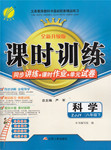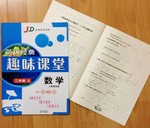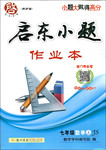题目内容
阅读理解
阅读下列短文,从每题所给的四个选项(A、B、C和D)中;选出最佳选项。
The whole world has turned its eyes towards a wild animal-the masked palm civet(猓子狸).
This animal is thought to be a carrier of SARS, the deadly disease that has infected(感染) over 8,200 people and killed more than 750 around the world since last November.
On May 23, researchers in Hong Kong and Shenzhen reported that they had found a coronavirus(冠状病毒) “very similar” to the SARS virus in the faeces(粪便) of civets. Now they think SARS might have jumped to humans from this animal, which has short fur and black and white stripes(条纹) on its face.
Civets are the main part of a popular wildlife dish, “dragon-tiger-phoenix soup”, in southern China. The civet plays the role of the tiger while snake and pheasant(野鸡) make up the other two items. It is thought that the dish can improve people's vitality(精神;活力) levels. And it can sell for up to 1000 yuan. But the meal might not be as healthy as it seemed. Yuen Kwok-Yung, a Hong Kong scientist, said SARS may have jumped into humans when they raised, killed and cooked the civets. However, if the food was properly cooked, he said, the virus should have been killed.
Although large amounts of the virus were found in the animal's faces, it appeared to be unaffected. Researchers say the virus may have jumped from the animal to humans or, perhaps, from humans to the civet in the crowded street markets.
But now the connection has been made, people have started abandoning(抛弃) their pet cats in the street because they look similar to civets. “They were probably abandoned because of all the media articles linking cats to the SARS virus,” said a Hong Kong official from the Society for the Prevention of Cruelty to Animals.
A WHO official later warned that it was too early to make the firm conclusion that the civet was the definite(明确的) carrier of SARS.
But the Chinese mainland(大陆) has begun to ban(禁止) the sale and consumption(消费) of the animal and Hong Kong has banned the import(进口) civet meat.
1.Civets ________.
[ ]
A.are commonly regarded as the definite carrier of SARS
B.are forbidden to raise in China at present
C.taste more delicious than most wild animals
D.have some virus similar to the SARS virus
2.Before SARS broke out, ________.
[ ]
A.scientists knew little about civets
B.people in the south were fond of the dish with civets
C.China was the largest importer of civet meat in the world
D.the civets in China are endangered
3.Pet cats were abandoned in the street because ________.
[ ]
A.they live the way as civets do
B.they were found to be a carrier of SARS
C.people cared more for their health
D.people had other favorites instead of cats
4.You can't find the meat of ________ when you have “dragon-tiger-phoenix soup”.
[ ]

 课时训练江苏人民出版社系列答案
课时训练江苏人民出版社系列答案 黄冈经典趣味课堂系列答案
黄冈经典趣味课堂系列答案 启东小题作业本系列答案
启东小题作业本系列答案